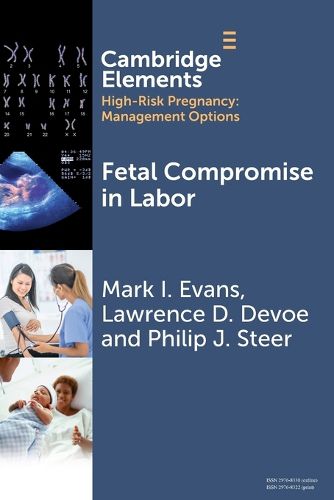Readings Newsletter
Become a Readings Member to make your shopping experience even easier.
Sign in or sign up for free!
You’re not far away from qualifying for FREE standard shipping within Australia
You’ve qualified for FREE standard shipping within Australia
The cart is loading…






Sixty years ago, the purpose of introducing electronic fetal heart rate monitoring (EFM) was to reduce the incidence of intrapartum stillbirth. However, by the early 1980s, with falling stillbirth rates, fetal blood sampling had been widely abandoned, as many considered that EFM was sufficient on its own. Unfortunately, while the sensitivity of EFM for the detection of potential fetal compromise is high, specificity is low, and there is a high false positive rate which has been associated with a rising cesarean section rate. The authors suggest that EFM is considered and analyzed as a classic screening test and not a diagnostic test. Furthermore, it requires contextualization with other risk factors to achieve improved performance. A new proposed metric, the Fetal Reserve Index, takes into account additional risk factors and has demonstrated significantly improved performance metrics. It is going through the phases of further development, evaluation, and wider clinical implementation.
$9.00 standard shipping within Australia
FREE standard shipping within Australia for orders over $100.00
Express & International shipping calculated at checkout
Sixty years ago, the purpose of introducing electronic fetal heart rate monitoring (EFM) was to reduce the incidence of intrapartum stillbirth. However, by the early 1980s, with falling stillbirth rates, fetal blood sampling had been widely abandoned, as many considered that EFM was sufficient on its own. Unfortunately, while the sensitivity of EFM for the detection of potential fetal compromise is high, specificity is low, and there is a high false positive rate which has been associated with a rising cesarean section rate. The authors suggest that EFM is considered and analyzed as a classic screening test and not a diagnostic test. Furthermore, it requires contextualization with other risk factors to achieve improved performance. A new proposed metric, the Fetal Reserve Index, takes into account additional risk factors and has demonstrated significantly improved performance metrics. It is going through the phases of further development, evaluation, and wider clinical implementation.